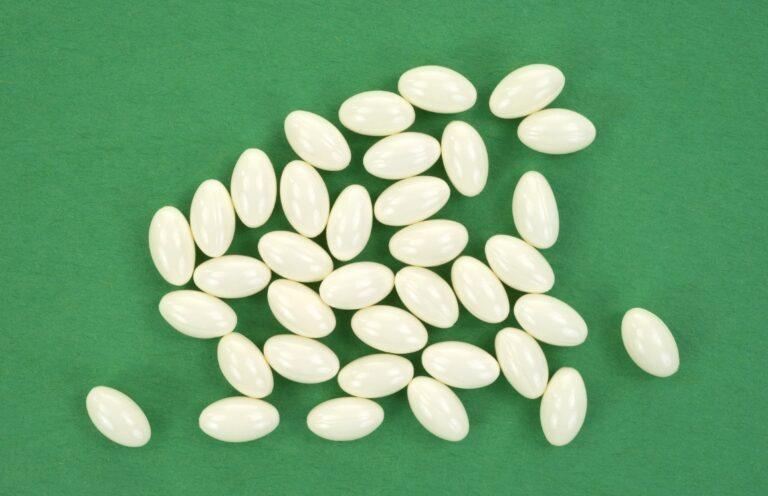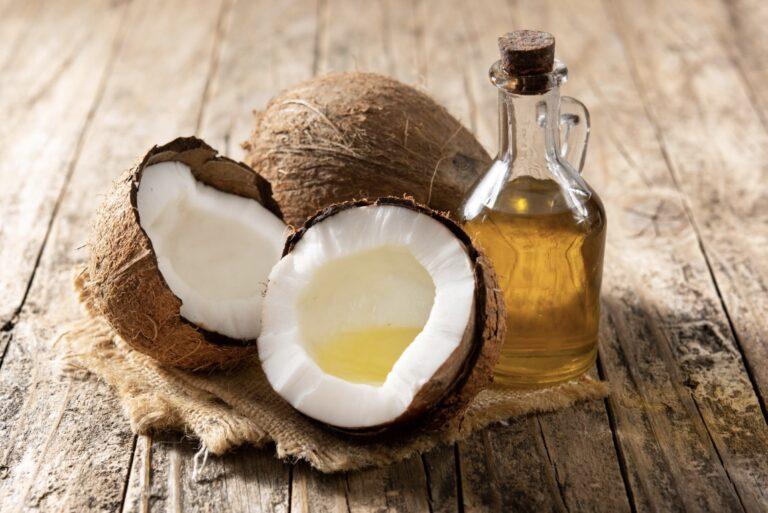Did you know there’s a link between your hair and what you eat? If you’re finding that your hair isn’t as thick and lustrous as it used to be, your diet could be to blame. Here we’ll explain why and run through which vitamins are the best for hair growth and health.
What’s the connection between vitamins and hair?
Vitamins are substances your body needs that it can’t make itself and you need to get through your diet. This means you need to eat specific foods that contain the right vitamins and in the right amounts.
Vitamins are used by the cells of your body for a wide range of functions. They help your cells create energy, absorb other nutrients and protect themselves from damage. If your cells don’t get enough of the vitamins they need they can’t work as well as they should. This is just as true for the cells in your hair.
If your hair doesn’t get the right vitamins it can look dull, be more susceptible to damage and can thin and fall out.
What vitamins help hair growth?
Your hair needs a range of vitamins to be healthy and to grow properly. These include vitamin A, B12, biotin (B7), C, D and E. If you don’t get enough of these vitamins it can affect your hair and even make it fall out.
Do hair vitamins work?
Getting the right range of vitamins in your diet will help keep your hair healthy. If you have hair loss that’s caused by a vitamin deficiency research has shown that increasing your intake of that vitamin can help fight the hair loss. If your hair loss is not caused by a vitamin deficiency extra vitamins may not help, but you can try a prescription treatment.
Can vitamins make hair thicker?
Some vitamins can help keep your hair healthy. If you don’t get enough of these vitamins your hair can thin and fall out. If you have a vitamin deficiency, getting more of that vitamin can make your hair thicker. If your hair loss isn’t caused by a vitamin deficiency you may find a prescription hair treatment to be more effective.
What is the best vitamin for hair loss?
Vitamins A, B12, biotin (B7), C, D and E are all important for your hair’s health. These are your essential hair vitamins:
Vitamin A
Every cell in your body needs vitamin A, and hair, the fastest growing tissue in your body, is no exception.
Vitamin A keeps your hair cells healthy and functioning properly. It also helps glands in your scalp to produce a natural oil called sebum that keeps your hair in good condition. If you don’t get enough vitamin A your hair can suffer and can even fall out.
You do need to be careful with vitamin A however, as large doses of it can harm your health, and it can even make you lose hair if you take too much. In the UK the government recommended intake of vitamin A is 700 µg (nanograms) a day for adult men. You’ll find about this amount in most multivitamins, so there’s no need to include more supplemented vitamin A in your diet.
You can also eat foods rich in vitamin A like beef liver, oily fish like tuna and salmon, carrots, sweet potato, spinach, broccoli and red bell peppers.
Vitamin b12
Also called cobalamin. Vitamin B12 is used by the cells in your hair to break down and use carbohydrates, proteins and fats. Vitamin B12 deficiency can cause your hair to fall out and if your hair cells don’t get enough vitamin B12 they won’t develop and function properly. You can boost your vitamin B12 intake by eating meat like beef and chicken, oily fish like tuna and salmon, shellfish, eggs and dairy products including milk, cheese and natural yoghurt.
Vitamin B12 is one of the vitamins you’re most likely to be deficient in, with around 6% of people under 60 in the UK thought to not get enough of it. This is usually because vitamin B12 is mostly found in meat and dairy products and if you’re vegetarian or vegan, you may not get enough in your diet.
Biotin
Biotin is another B vitamin (B7) that’s important for hair health and is closely linked to hair loss.
Most of the research to date on biotin has focused on women, but studies have found that up to 38% of hair loss was associated with a biotin deficiency. Research has also shown that in those whose hair is thinning, biotin supplements can improve the thickness and growth of their hair.
You can find biotin in beef and chicken liver, eggs, oily fish like salmon, nuts and seeds, most dairy products, avocados, sweet potatoes and broccoli. You can also take biotin supplements to help make sure you’re getting the biotin your body needs.
Vitamin c
Vitamin C is used by your body to produce collagen, an important ingredient of hair. It also helps your hair cells absorb iron, which they need to grow. If you don’t get enough vitamin C the quality of your hair can take a hit.
It is also a powerful antioxidant, which is a substance that protects your cells from internal damage. Research has found that people with hair loss often have lower levels of antioxidants in their scalps, so vitamin C may well protect your hair from the inside out.
You can find high levels of vitamin C in lots of fruits and vegetables, like citrus fruits, cherries, strawberries, kiwis, kale, broccoli and Brussels sprouts.
Vitamin D
The D vitamins are a collection of vitamins that have a range of effects on your body. It’s thought that vitamin D plays an important role in hair formation and that it helps your body make hair follicles – the structures in your skin that produce hair.
If you don’t get enough vitamin D it can lead to a hair loss condition called telogen effluvium. You could also have a vitamin D deficiency, as it’s thought to be the most common deficiency in the UK with around one in five people having low vitamin D levels.
You can boost your levels of vitamin D by spending more time in the sun, as your skin makes vitamin D when it comes into contact with UV-B sunlight. You can also find it in foods like fatty fish, mushrooms and eggs, or you can take a vitamin D supplement.
Vitamin E
Last in our list but definitely not least. Vitamin E is an antioxidant and it plays an important role in hair growth. It may even be the most important nutrient for your hair. In one study where men and women took a supplement of a version of vitamin E called tocotrienol, the volunteers saw a 34.5% increase in hair growth after eight months.
You can boost your vitamin E levels using a supplement or by eating foods rich in vitamin E. These include nuts and seeds, particularly almonds, hazelnuts, pine nuts and sunflower seeds. Also, salmon, trout, avocados, kiwis, spinach and broccoli.
Do you need to take vitamin supplements?
You can get all the vitamins you need if you eat a healthy and varied diet.
But life isn’t always that simple. When you’re busy and stressed and don’t have the time and space to devote to your diet you don’t always eat exactly what you should. Vitamin supplements can be a quick and convenient way of ensuring you’re getting the vitamins your body needs.
They are usually harmless for most people too, but make sure you buy trusted products from reputable retailers to ensure you’re really getting what you paid for. If you have any concerns about taking a vitamin supplement you should talk to your doctor.
Other hair loss treatments
Getting the vitamins your hair needs is the foundation of keeping your hair healthy and in good condition. However, if you eat a healthy, well-balanced diet but you’re still finding that your hair is receding and thinning on the top of your head and along your hairline, you may have a condition called male pattern baldness.
Male pattern baldness (MPB) is the most common cause of balding in men, and vitamins alone won’t be enough to combat it. If you think you have MPB, you can try a prescription treatment called finasteride that is scientifically proven to treat hair loss. You can order finasteride or Propecia directly NowPatient.
Sources
Medical Disclaimer
NowPatient has taken all reasonable steps to ensure that all material is factually accurate, complete, and current. However, the knowledge and experience of a qualified healthcare professional should always be sought after instead of using the information on this page. Before taking any drug, you should always speak to your doctor or another qualified healthcare provider.
The information provided here about medications is subject to change and is not meant to include all uses, precautions, warnings, directions, drug interactions, allergic reactions, or negative effects. The absence of warnings or other information for a particular medication does not imply that the medication or medication combination is appropriate for all patients or for all possible purposes.








